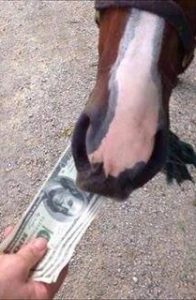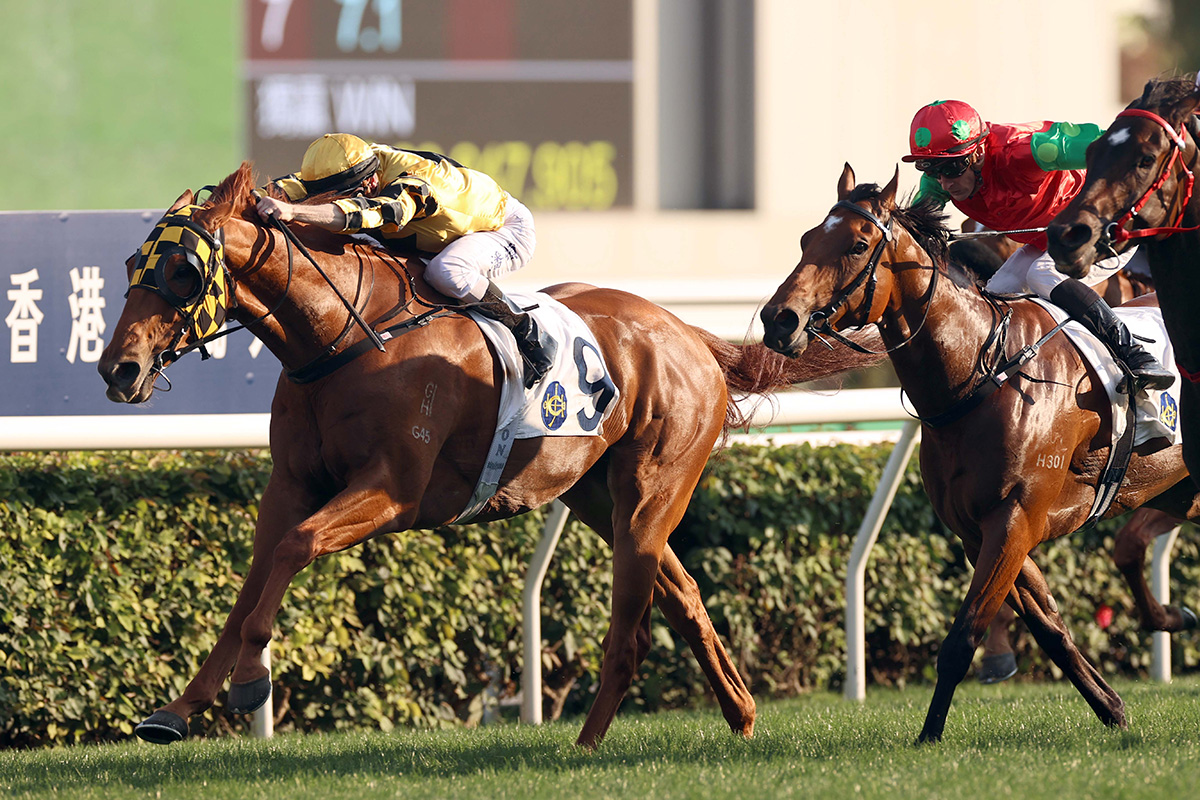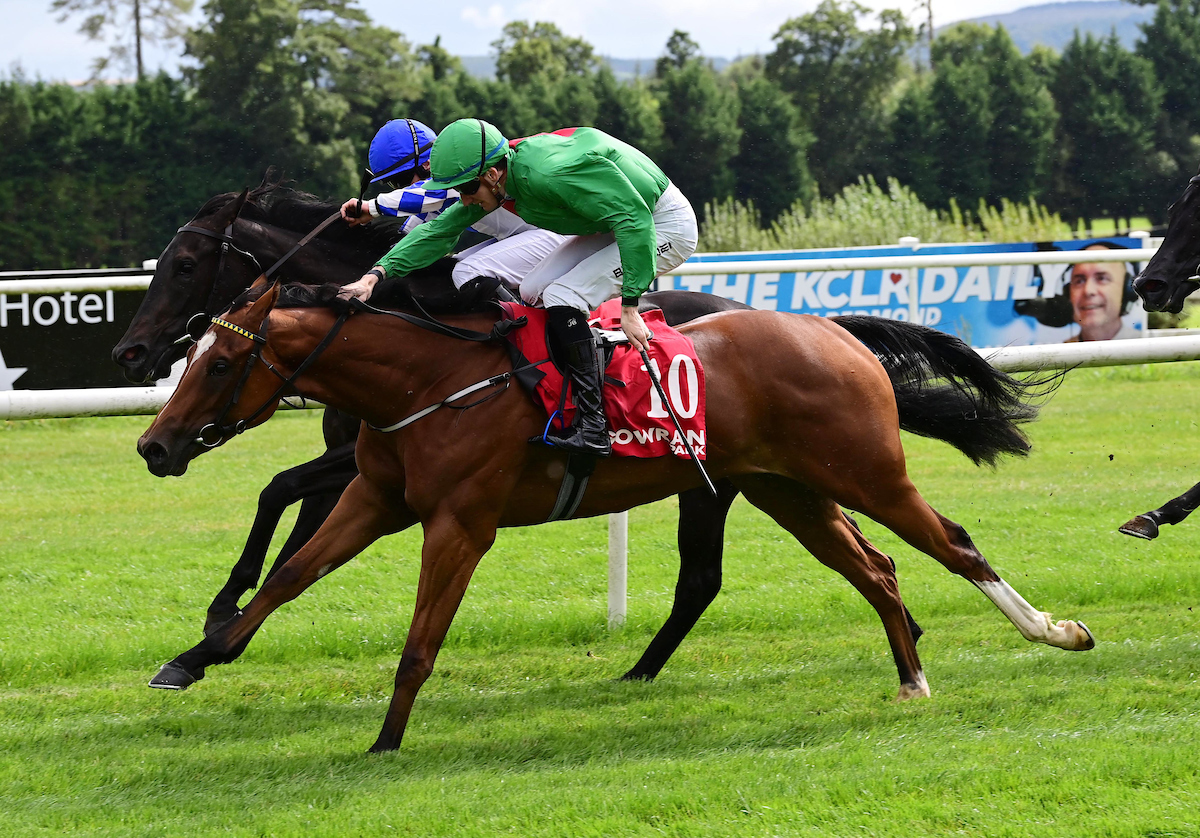 Last week the Sporting Post mailbag received a letter from an owner who had been taken by surprise by the recently implemented 1% stakes deduction for grooms. The letter, published on our website, generated quite a lot of interest and debate, with some people of the opinion that the writer was well within their rights and others that they were being a tight-fisted so-and-so. Interestingly, some of the most disparaging comments on our letter, automatically assumed that it was written by a woman, which, given the recent article by Houston Press’ Jef Rouner on gender assumptions, was quite amusing. But that’s a debate for another day.
Last week the Sporting Post mailbag received a letter from an owner who had been taken by surprise by the recently implemented 1% stakes deduction for grooms. The letter, published on our website, generated quite a lot of interest and debate, with some people of the opinion that the writer was well within their rights and others that they were being a tight-fisted so-and-so. Interestingly, some of the most disparaging comments on our letter, automatically assumed that it was written by a woman, which, given the recent article by Houston Press’ Jef Rouner on gender assumptions, was quite amusing. But that’s a debate for another day.
Regardless of which side of the debate one chooses, I thought the most interesting point it raised was the issue of owner education – or lack of it – and whether this wasn’t perhaps the real heart of the matter.
Jockeys are required to serve a five year apprenticeship before becoming fully fledged professional riders and trainers and stable staff are subjected to an exam. However, there is no Jockey Club interview anymore and owners are accepted freely. How then, are newcomers supposed to know how racing works? Racing is a complicated business and there seem to be a million and one rules, rituals and requirements which don’t make a lot of sense to a ‘normal’ person (for the sake of this article I am labelling all non-horse owning people as ‘normal’ and the rest of us as ‘other’).
We sell ‘a lifestyle’ or ‘a Rush’, but don’t explain what that means in real terms. There is no ‘Idiot’s Guide to Owning A Racehorse’, so it’s natural that from time to time people will be taken by surprise (and not always in a good way). I thought I’d list a few things that I’ve either heard or experienced through my racing journey.
Logistics
Some people like to get all the admin out of the way first, others prefer to jump right in and just buy a horse- there are no hard and fast rules. Either way, sooner or later you will need to register to become an owner via the regulatory body (once known as the Jockey Club, now called the National Horseracing Authority or NHRA). Payment of an annual subscription will be required (generally referred to as taking out your colours or becoming a colour or privilege holder). The fee will vary depending on whether you race as a single owner, a partnership or as part of a syndicate. Once your money has been banked, the NHA will largely lose interest in you until the next time subscriptions are due.
There are a number of ways to buy a horse, the most common being at one of the many sales held throughout the year. You can ask a trainer to advise you, enlist the help of a bloodstock agent, or imbibe a lot of the hospitality on offer and simply ‘wing it’ – a popular choice.
A horse has a passport and after purchasing it, your horse will need to go to a spelling farm to grow up. You may not hear much news about your horse during this time, but do not worry yourself – a simple way to make sure it is still alive is to check your mailbox. If it contains an invoice, your horse is alive and well.
If you don’t like your horse’s name, you can change it – for a small fee if it hasn’t raced, or a larger one – subject to approval – if it has. Once your horse is suitably matured, it will need to be transferred to a trainer of your choice. You may like to join a yard with friends, or take pot luck. Do some research if you like, but know that your actual training fees will bear no resemblance to what you were quoted. Monthly fees will also fluctuate wildly from one month to the next. If all goes well, it will take roughly three months for your horse to become race ready.
Bills
In the interim there will be bills from the vet, farrier, dentist, physio, chiropractor, transporter and possibly even horse whisperer. Bizarrely, there will be more of these when the horse is not running than when it is.
Next you will need to register an Authority to Act – it costs around R700 and is a vaguely worded document that allows your trainer to do – well just about anything, really. If you haven’t done so earlier, now is a good time to purchase a set of colours (also known as silks – even though they are synthetic). You may need more than one set if you have multiple runners. You will be charged nomination fees every time your horse is entered in a race. Entering does not guarantee you a run and you may need to enter several times before your horse actually gets into a race. This is called being accepted and will incur an additional fee. Nomination and acceptance fees for smaller races are nominal, but do increase depending on the nature of the race. Important races cost more and often have an option to enter late – at a higher fee. It is worth scanning the Gallop website or better yet, the Sporting Post, to see if your horse has been accepted to race – trainers don’t always remember to tell you in advance. Or sometimes even at all.
There is a lot to do on race day, but happily not for the owner. Your trainer will engage a jockey to ride your horse. If your hapless animal manages to run into the money, there will be an additional deduction for the trainer, the jockey and the newly implemented groom’s fee. Some yards will add additional fees onto your monthly bill if your horse wins. If your horse is done out of earning by less than perfect racing, then you may object (or appeal) again for a fee – which may or may not be refunded, depending on the outcome.
Terminology
Putting aside the administrative gymnastics, the issue is confused further by having complicated terminology for things – exactly how far is a furlong in metric terms? What is ‘a Derby’ or an ‘Oaks’ (that’s a rhetorical question for all our Gold Circle friends) and why all those confusing betting fractions? Even if you do get to grips with the jargon and can navigate a simple discussion about your horse, racing folk are masters of understatement and mystery. I’m not sure whether it is to save owners’ delicate sensibilities, but one rarely hears anything that constitutes sensible feedback. ‘Wants further’, ‘wants less’, ‘didn’t like the going’ (we only have 8 tracks left!). And when you head into medical territory, it’s even worse – haemoconcentrating, epistaxis, compounding, pulmonary haemorrhage, rhabdomyolysis (brownie points for anyone who identified the condition that was listed twice under two different names), or worst of all ‘seems a bit off’. One needs a dictionary to decipher your trainer and another to speak to your vet. Actually, scrub that, as some racing vets will only speak to paying clients with permission from the trainer – true story. And while we’re on the subject of vets, you will hear quite a lot from them – usually at month end via a nice window envelope.
I don’t think it’s meant to be subterfuge, but it is very confusing and for some reason, owners learn early on that asking questions is frowned upon. Trainers are generally far too busy to explain and when someone does pluck up the courage to ask (surely an intelligent thing to do if one doesn’t understand something), the rest of the community takes pleasure in either lambasting or lampooning them. This seems a bit unfair if you ask me (no-one does of course, but chance would be a fine thing).
Racing Organisations
We could also do with an ‘Idiot’s Guide to Racing’. There is Weight For Age, handicaps, conditions races and who on earth understands the merit rating system? The NHRA Rule book runs to 130 pages (good luck trying to stay awake through all that), which is only marginally applicable as the Operators seem to work off a different set altogether. Then there is the multitude of organisations to get to grips with – there’s the NHA, the NRB, the TBA, CTS, Phumelela, Gold Circle, Kenilworth Racing, the RA, the Racing Trust (run by the RA), Tellytrack, the National Horse Trust, SAJA, SANGATA and Racing, It’s A Rush – why are there so many organisations and why do so many of them refuse to explain to anyone what they do? For example, you can join the Racing Association (a national body that isn’t) for another fee, but you will get a nice badge and a bonus cheque if you win one of their qualifying races.
What’s the answer
What floors me is that despite all the above mess, most owners and trainers operate without any form of contract. Yes folks, despite most high street cell phone shops requiring a 13 page document, you can drop your horse with a trainer without exchanging any paperwork at all. Given that racing charges in arrears and that by the first day of the new month, most clients are already in debt, this promises endless potential for all sorts of mischief – and generally delivers.
Interestingly, while the NHA seems happy to sit in judgment on people’s behaviour and dish out fines for bringing racing into disrepute, it is squeamish when it comes to money, so don’t expect them to be helpful on this score. There is no ‘racing ombudsman’ so for any disputes of a financial nature you will be kindly, but firmly advised to seek legal advice under your own steam / cost. Once you have obtained a court judgment, you may ask the NHA to place the offending party on the defaulters list. For a fee of course.
Communication
One high profile owner told me he only rings his trainer when his horses win. This may be the sort of behaviour old school trainers of yesteryear expected – if not demanded – of clients, but is something most people (that I know anyway) find quite hard to do.
I’m led to believe that people who own a hundred horses tend to take a broad brush approach, while those who own one, or even more so those who own a small share in a horse, tend to want to know everything in full. Having only ever had small numbers of horses, I’m a bit of a detail girl myself, but the truth of the matter is that owners come in as many shades as horses have coat colours. Perhaps there should be an ‘Idiot’s Guide to Owners’.
Money money money
There was debate as to whether racing is a business. Breeding horses commercially is a profession, training horses commercially is a profession, but owning horses is not. Owning horses is a leisure pursuit, in the same way that tennis and golf are leisure pursuits. But owners are still consumers and today’s consumer is a much more informed individual. We read supermarket labels, we want to know whether the products we buy are responsibly sourced. In short, modern consumers are a lot more demanding. And what we demand most of all is knowledge so that we can make informed buying choices.
If we have a new breed of owner, perhaps we need a new breed of trainer? Or perhaps we need to look at the administration of the business as a whole and evolve to accommodate a changing client base. Perhaps this has been delayed because there has been very little imperative in the way of a new client base. Or perhaps the client base hasn’t arrived because we don’t cater to them. Food for thought.
In closing, it is important to add the disclaimer that the above are composites of a number of stories collected over the years. Similarities to any horse, owner, trainer, jockey, vet, operator or regulator – real or imagined – is coincidental.














